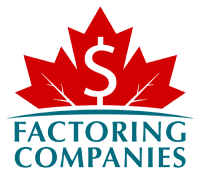What Is Factoring and How Can It Help Your Business?
So what is factoring? As a small business owner, you need capital in order to operate. You have employees to pay, vendors you owe, and numerous other expenses. Even if you have a steady flow of customers, it’s easy to see a cash shortfall, particularly if your customers don’t typically pay their bill for 30, 60 or 90 days after being invoiced. There is a way around this problem, though. Factoring can give you the cash you need now, without the challenges involved with obtaining a typical loan. So at the first place?
What Is Factoring?
Not sure what factoring actually is, or how it can benefit your business? It’s just a relatively straightforward situation, but there are a few things you’ll need to know. First, let’s define how the process works.
If your business is facing a cash shortfall, but you have customers with outstanding invoices, you can sell those invoices to a factoring company. In return, the factoring company will pay you (less a small fee).
You get the cash you need, and the factoring company then owns the invoice. You’ll have the cash you need to pay your employees, vendors or meet other business expenses, and the factoring company will have the invoice. That’s the end of the transaction.

Couldn’t you meet your financial obligations with a conventional loan from a bank? Yes, you could, but there are a few reasons that this might not be the best path to take. With a conventional loan, you generally have to work with a bank or other lender, and these institutions are notorious for dragging out the loan approval process. When you need cash immediately to meet a shortfall, the length of time you have to wait for approval can cause your financial problems to compound.
Of course, there’s also the fact that fewer and fewer banks are willing to make small business loans unless you have a sterling credit history and/or a significant amount of collateral to put up for the loan. Then there’s the fact that you’ll ultimately have to repay the loan plus interest, which means you end up owing more than you borrowed in the first place.
With factoring, you are not taking on any additional debt. In fact, you’re only taking on risk if there’s a possibility that your customer will not pay their invoice on time. You’re also not forced to go through the lengthy loan application and approval process, and there’s no need to worry about your own credit score. Your invoice is the collateral, and the money you’re paid is based on that amount, less the factor fee assessed by the factoring company.
How Does Factoring Work?
Now that we have covered what is factoring, while the process is pretty simple, it does involve more than just a simple sale of an invoice for cash. There are several steps that will be taken during the process.
The fee charged for business factoring will depend on several different factors. One of those is the amount of the invoice. Another is your customer’s creditworthiness. Obviously, the less creditworthy your customer, the more risk the factoring company takes on, so the higher the fee will be. It will also vary depending on whether this is a recourse or nonrecourse factor.
Another aspect that will affect your total cost for factoring is the length of the factoring period. Most factoring companies charge the discount rate weekly or monthly. So, if you sell an invoice with 90 days remaining, and the company charges fees monthly, it’s possible that you will pay that fee three times before your customer pays the invoice. This can add up quickly, so be very sure that you understand how the factoring company assesses fees.
Recourse vs. Nonrecourse Factors
To better understand what is factoring, you have to understand the difference between recourse and non-recourse. A recourse factor is simply a situation in which you are responsible if your customer does not pay the invoice. A nonrecourse factor is a situation in which the factoring company is responsible. If you’re responsible, and your customer doesn’t pay, you may be required to repay the amount the factoring company gave you, or you might have to replace the original (now defaulted) invoice with another one that has an equal value.
Obviously, if you have already spent the money the factoring company paid, and do not have another invoice of equal or greater value with which to replace the original one, this can create a very difficult situation, leaving you facing another cash shortfall. To avoid this potentially devastating situation, only factor invoices from customers who have proven their ability to pay invoices in a timely manner.
If the factoring company is responsible, then you have no obligations, but chances are good that the factoring fee (also called a discount rate) will be higher to offset the company’s higher risk. Check the contract you sign with the factoring company to determine what exemptions might be included that could still leave your business on the hook if your customer fails to pay the invoice on time.
There are also partial recourse contracts out there that have a mix of different features and requirements that center on who is responsible if the original customer does not pay the invoice on time (or at all).

Who Is a Good Fit for Business Factoring?
It’s important to understand that what is factoring and why it is not necessarily a good fit for all companies. In order to benefit here, you need an immediate requirement for cash (payroll costs, business operating costs, etc.), as well as a customer who owes money on an invoice that typically does not pay for at least 30 days. Of course, the terms of the invoice may vary, but they should not exceed 90 days.
In addition, your customer needs to be creditworthy, and should have a history of paying invoices on time, every time. This is not an area where you want to take on the additional risk of attempting to factor an invoice with a customer who is new, or who may sometimes struggle to pay on a timely basis.
The Pros and Cons of Business Factoring
As you might imagine, there are several pros and cons to factoring for business. Understanding these benefits and drawbacks is crucial prior to working with a factoring company.
Pros
Cons
As you can see, while the pros definitely outweigh the cons here, there are things that you’ll need to consider before working with any factoring company. You’ll also want to consider the length and type of contract the company wants you to sign – factoring companies sometimes want to lock their clients into long-term contracts that require very high fees to cancel, as well as minimums that might not work for your business. If you end up locked into a long-term contract but only need to factor invoices every now and then, you could be spending money for a service that you don’t actually need.
Invoice Factoring vs. Invoice Financing vs. Accounts Receivable Financing
There are many similar terms that are used interchangeably today, including invoice factoring, invoice financing and accounts receivable financing. While they’re all very similar, they are not always identical. For instance, understanding what is factoring type that you need for your business, the factoring company my end up handling collections on your invoices. With invoice financing, it is usually your responsibility to collect on the invoice. Accounts receivable financing, on the other hand, is essentially the same thing as invoice factoring.
Choosing the Right Factoring Company
As you have likely surmised from the information above, working with the right invoice factoring company is the most crucial consideration here. There are many different definition of what is factoring, and the types factoring companies out there, ranging from those that work within specific industries to generalists. There are also reputable companies, and those that should be avoided. We invite you to get a free consultation with one of our factoring specialists to learn more about what is factoring, and how it can help your cash flow. We have years of experience in helping our clients understand what is factoring, and navigate the sometimes murky waters of invoice factoring, and matching them with factoring companies that are right for their specific needs.
Get an instant factoring estimate
Factoring results estimation is based on the total dollar value of your invoices.
The actual rates may differ.
CLAIM YOUR FREE FACTORING QUOTE TODAY!
PREFER TO TALK?
You can reach us at
1-866-477-1778
Get an instant factoring estimate
Factoring results estimation is based on the total dollar value of your invoices.
The actual rates may differ.
CLAIM YOUR FREE FACTORING QUOTE TODAY!
PREFER TO TALK? You can reach us at 1-866-477-1778



